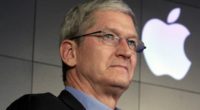In a lengthy US Congress grilling that lasted for over six and a half hours, new emails being cited by members of the congress reveal that Mark Zuckerberg perceived Instagram and Path as threats to the company, eventually leading up to the acquisition of the former.
During the hearing, members of the House judiciary’s antitrust subcommittee pointed to emails sent by Zuckerberg in 2012 as evidence that the company saw Instagram as a competitive threat. These emails are a part of a larger evidence gathering exercise that members did, before grilling the top tech CEOs on their company’s anti-competitive practices.
In a February 2012 email conversation that took place between Zuckerberg and then Facebook CFO David Ebersman, the former can be read talking about how much money they would offer to buy these apps. However, what he also wrote in these emails, is how he perceived such small yet growing networks at that time, as a threat to his own company.
“The businesses are nascent but the networks are established, the brands are already meaningful and if they grow to a large scale they could be very disruptive to us,” Zuckerberg wrote in the email, which were released by House Judiciary Committee, ironically on Twitter.
Documents from the Hearing on “Online Platforms and Market Power: Examining the Dominance of Amazon, Apple, Facebook and Google" pic.twitter.com/zcQDpSgLg4
— House Judiciary Dems (@HouseJudiciary) July 29, 2020
He later clarifies to Ebersman that he didn’t mean to imply that Facebook would be buying Instagram and Path “to prevent them from competing in any way.”
In a separate email, Zuckerberg agreed with a Facebook employee’s assessment that Instagram and not Google Plus was a threat to the company.
“You were basically right,” Zuckerberg said in an email. “One thing about startups though is you can often acquire them. I think this is a good outcome for everyone.”
More similar email chains reveal how Facebook was vary of the threat posed by upcoming social networks at that time, and considered acquisition as the only way to stop that from happening. In a line of questioning initiated by Republican Pramila Jayapal, she specifically referenced emails from 2012 between Zuckerberg and Facebook COO Sheryl Sandberg. In those emails, Zuckerberg had written that by moving faster, Facebook could “prevent our competitors from getting footholds.” Sandberg had responded that “it is hard not to agree it that is better to do more and move faster, especially if that means you don’t have competitors build products that takes some of our users.” A PM had also chimed in that they would love to see Facebook being “even more aggressive and nimble” in copying competitors, Jayapal noted.
With these hearings in place and new revelations coming out, the Federal Trade Commission, which approved the $1Bn Instagram acquisition back in 2012, is now probing the same. It is looking at whether Facebook bought the company to stiffle competition and create monopoly in the social media space.
The Tech Portal is published by Blue Box Media Private Limited. Our investors have no influence over our reporting. Read our full Ownership and Funding Disclosure →






